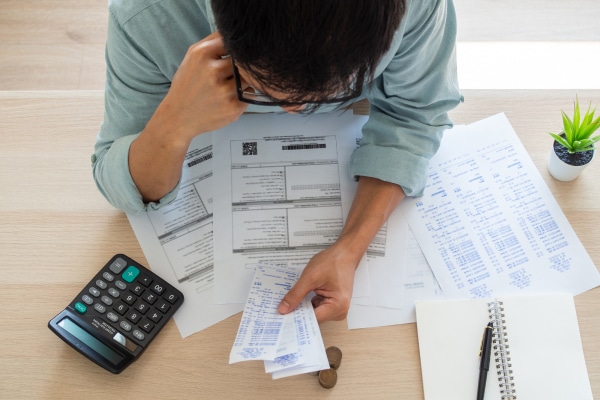This page was written, edited, reviewed & approved by Emil J. Fleysher following our comprehensive editorial guidelines. Emil J. Fleysher, the Founding Partner, has 15+ years of legal experience as a bankruptcy attorney. Our last modified date shows when this page was last reviewed.

A bankruptcy trustee is crucial in managing a debtor's bankruptcy estate. When someone files for bankruptcy, the court appoints a trustee to oversee the process. The trustee ensures that assets are properly handled and creditors are paid based on bankruptcy laws.
In both Chapter 7 and Chapter 13 bankruptcy cases, the trustee's role differs but remains essential. The trustee ensures the bankruptcy estate is managed fairly, helping protect debtors and creditors throughout the process.
At Fleysher Law, we understand the importance of having the right help during a bankruptcy filing. Our experienced bankruptcy attorneys guide you through the process, ensuring you know your rights under bankruptcy law. We work to protect your interests and help you get the fresh start you need.
A bankruptcy trustee is appointed to oversee the bankruptcy case. They manage the bankruptcy estate and ensure that laws are followed. The trustee liquidates assets in a Chapter 7 bankruptcy and oversees the repayment plan in Chapter 13.
The trustee is responsible for reviewing all financial information and ensuring creditors receive appropriate payments according to the bankruptcy code.
Bankruptcy trustees work in both Chapter 7 and Chapter 13 cases, but their roles differ slightly. In Chapter 7 cases, they manage the liquidation of assets.
In Chapter 13 cases, they help oversee the repayment plan. The trustee program ensures that all bankruptcy cases are handled fairly and properly.
A bankruptcy trustee can either be appointed by the United States Trustee or a private estate trustee. Their authority comes from the bankruptcy trustee's duties outlined in the law. These trustees have the legal power to take control of the bankruptcy estate and carry out their responsibilities.

In Chapter 7 bankruptcy, a bankruptcy trustee's role is primarily to oversee the liquidation of the debtor's assets. The trustee program ensures that all parties involved follow the rules and that the trustee manages the bankruptcy estate fairly.
The United States Trustee assigns a bankruptcy trustee to review and manage the debtor's assets. During the bankruptcy proceeding, the trustee determines which assets are exempt and which can be sold to pay creditors.
The trustee administers the non-exempt assets by liquidating and dispersing the proceeds to the creditors.
Exempt assets typically include necessities like a portion of home equity, personal items, and essential household goods, which the debtor can keep.
The goal of Chapter 7 is to provide the debtor with a fresh start while ensuring creditors receive payment from the debtor's available assets.
In a Chapter 7 case, the bankruptcy trustee oversees the liquidation of non-exempt assets. These assets become part of the bankruptcy estate and are sold to pay off debts.
Liquidation bankruptcy is a process where the trustee ensures that the creditors receive payment based on the value of the debtor's estate.
The bankruptcy process requires honesty from the debtor. The trustee is part of the trustee program and is responsible for investigating any signs of fraud or financial mismanagement. If the trustee finds evidence of dishonesty, they can take action to protect the creditors.
Bankruptcy trustees in Chapter 13 cases focus on managing the repayment plan and handling any objections from creditors. They ensure that all parties follow bankruptcy laws and that creditors are treated equally. The trustee works as a middleman between the debtor, creditors, and the court, helping the process move smoothly.
Under the bankruptcy code, the trustee reviews the debtor's repayment plan and must ensure that the plan provides fair payment to creditors. The bankruptcy estate remains under the trustee's control until the plan is complete, leading to the debtor's bankruptcy discharge.
Once the plan is approved, the bankruptcy estate stays under the trustee's control until the debtor completes all payments. The trustee ensures that payments are made on time and as agreed.
When the plan is fully paid, the debtor can receive a bankruptcy discharge, which means they are no longer responsible for certain debts. The trustee's role is essential in ensuring this process runs smoothly and fairly for everyone involved.
The United States Trustee appoints a bankruptcy trustee to manage the repayment process in Chapter 13 cases.
One of the trustee's primary responsibilities is to ensure the debtor makes consistent, timely payments as outlined in the repayment plan. These payments are critical because they go toward settling debts owed to creditors.
Secured debts, like car loans or mortgages, are usually paid first. Unsecured debts, such as credit cards, come after. The trustee follows the repayment plan to ensure everyone gets paid fairly.
They also monitor the debtor's finances during the payment period. If necessary, the trustee can make changes to the plan to ensure the debtor stays on track. This helps ensure the process is fair for both the debtor and the creditors.
Bankruptcy trustees monitor the debtor’s progress. They are responsible for ensuring the debtor follows the rules of the bankruptcy code and continues making payments until the plan is finished.
The trustee reviews each payment to see if it matches the court's approval. If the debtor falls behind or misses a payment, the trustee may take action. This could mean talking to the debtor or bringing the issue to the court.
The trustee keeps everything on schedule and ensures the debtor follows the bankruptcy code rules. If needed, the trustee can also request changes to the plan to help the debtor keep up with payments.

A bankruptcy trustee plays a major role in any bankruptcy case. They work closely with the bankruptcy court to handle the debtor's financial affairs. Their job is to protect the creditors while helping the debtor move through the bankruptcy process.
The trustee's involvement is key to a successful case. They review assets and oversee payments. They also investigate any signs of fraud, ensuring the debtor is honest throughout the process.
For the debtor, the trustee's actions can determine how much of their property is sold and how their case progresses.
A bankruptcy trustee can sell your property if it is not protected under bankruptcy exemptions. During the bankruptcy process, the trustee reviews all assets and determines which are part of the bankruptcy estate.
In Chapter 7, the trustee will sell non-exempt assets to pay creditors. This is known as liquidation. However, in Chapter 13, the trustee focuses more on managing the repayment plan, and assets are almost never liquidated.
The trustee works under the rules of the bankruptcy process, so they must follow strict guidelines when deciding what can be sold. An experienced bankruptcy attorney will be able to advise you and guide you as to if and how you can keep your assets in bankruptcy to avoid an uncomfortable situation with the Trustee.

If you're facing bankruptcy, having an experienced lawyer is crucial. Bankruptcy trustees play a big role in your case, and knowing what to expect can help you feel more in control.
At Fleysher Law, we are here to guide you through the bankruptcy process. We understand how trustees operate and how to protect your interests.
Whether you are filing for Chapter 7 or Chapter 13, our team can help. Contact us today for a free consultation.

Emil specializes in consumer bankruptcy, debt settlement, and mortgage modification, offering a holistic approach to solving mortgage and debt problems. Emil listens to clients, understands their circumstances and goals, and helps them make the right choices by presenting all options and contingencies.
He is dedicated to helping South Floridians regain their financial freedom from overwhelming debt caused by high interest credit cards, bad mortgage loans, and uninsured medical expenses.

"*" indicates required fields